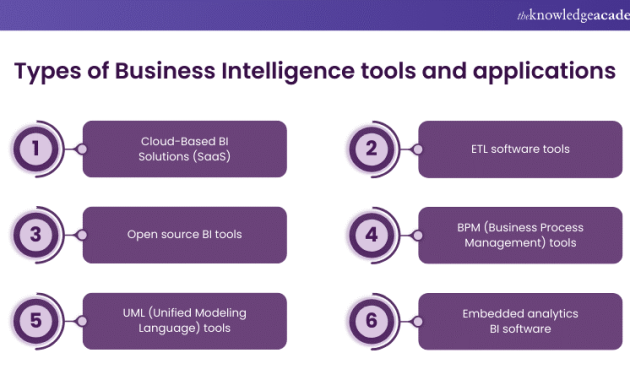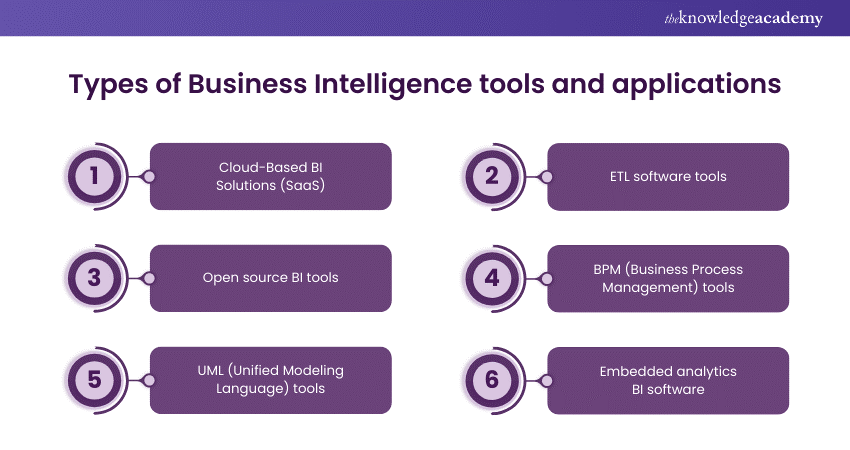
Get Ahead Using 11 Business Intelligence Tools: Your Guide to Data-Driven Success
In today’s data-saturated world, businesses are drowning in information. The real challenge isn’t collecting data; it’s understanding it. That’s where Business Intelligence (BI) tools come in. They are the life rafts, helping organizations navigate the turbulent waters of information and emerge with actionable insights. This article will explore 11 key business intelligence tools that can help you gain a competitive edge. These tools will empower you to make data-driven decisions and drive real business growth. This guide will help you select the right tools for your needs.
The landscape of business intelligence tools is vast and constantly evolving. Choosing the right tools can feel overwhelming. This guide will provide a clear overview of 11 powerful options. We’ll examine their core functionalities, strengths, and ideal use cases. By the end, you’ll have a solid understanding of which tools can best support your strategic goals. Understanding these tools is essential for any organization seeking to thrive.
Understanding the Core of Business Intelligence
Before diving into specific tools, let’s clarify what business intelligence is. It’s the process of transforming raw data into meaningful insights. This process involves collecting, analyzing, and interpreting data to inform better decision-making. BI enables businesses to identify trends, measure performance, and uncover opportunities. It helps to understand the ‘what,’ ‘why,’ and ‘how’ behind business operations. This data-driven approach leads to efficiency and profitability.
The benefits of implementing BI are numerous. They include improved decision-making, increased efficiency, and enhanced customer understanding. BI tools offer a competitive advantage in today’s market. They allow businesses to respond quickly to market changes and customer needs. This agility is crucial for success. Effective BI implementation is a key driver of business success.
Essential Business Intelligence Tools: A Deep Dive
1. Tableau
Tableau is a leading data visualization tool. It’s known for its user-friendly interface and powerful analytical capabilities. Tableau allows users to create interactive dashboards and reports. These can reveal hidden patterns and trends within data. Its drag-and-drop functionality makes it accessible to users of all skill levels. Tableau integrates with a wide range of data sources. This versatility makes it a popular choice for many businesses. It simplifies complex data analysis.
2. Microsoft Power BI
Microsoft Power BI is another industry leader. It offers a comprehensive suite of BI features. Power BI excels in data visualization, reporting, and data modeling. It integrates seamlessly with other Microsoft products. This makes it a natural fit for organizations already invested in the Microsoft ecosystem. Power BI’s affordability and ease of use are major advantages. It offers powerful analytical capabilities at a competitive price point. Power BI is ideal for collaborative projects.
3. Qlik Sense
Qlik Sense is known for its associative data modeling engine. This engine allows users to explore data relationships intuitively. Qlik Sense provides a user-friendly interface and robust analytical features. It excels at uncovering hidden insights and data-driven discovery. Qlik Sense’s scalability makes it suitable for businesses of all sizes. It offers powerful tools for data exploration. Qlik Sense offers compelling data visualization.
4. IBM Cognos Analytics
IBM Cognos Analytics is a comprehensive BI platform. It offers a wide range of features, including reporting, analysis, and dashboarding. Cognos Analytics is known for its enterprise-grade capabilities and robust security features. It’s a good choice for large organizations with complex data needs. Cognos Analytics supports advanced analytics and predictive modeling. It provides powerful data governance tools.
5. SAP BusinessObjects
SAP BusinessObjects is a suite of BI tools designed for enterprise-level data analysis. It offers a wide range of features, including reporting, dashboards, and data visualization. SAP BusinessObjects is particularly well-suited for organizations that use SAP ERP systems. It seamlessly integrates with SAP data sources. SAP BusinessObjects provides robust data governance and security features. It’s a comprehensive solution for large enterprises.
6. Sisense
Sisense is a BI platform focused on ease of use and speed of analysis. It allows users to connect to various data sources and build interactive dashboards quickly. Sisense excels in handling large datasets and delivering fast insights. It is designed to be user-friendly. Sisense offers powerful data visualization capabilities. It is a good choice for organizations seeking fast insights.
7. Looker
Looker is a modern BI platform that emphasizes data modeling and collaboration. It allows users to define data models and create consistent metrics across the organization. Looker excels at providing a single source of truth for data. It is known for its data governance and scalability. Looker is a good choice for organizations with complex data needs. It supports in-depth data exploration.
8. Domo
Domo is a cloud-based BI platform designed for collaboration and real-time data analysis. It offers a user-friendly interface and a wide range of data connectors. Domo excels at providing real-time insights and data-driven collaboration. It is designed for ease of use and quick deployment. Domo is ideal for teams needing immediate data access.
9. Yellowfin BI
Yellowfin BI is a platform focused on automated insights and collaboration. It uses machine learning to identify key trends and anomalies in data. Yellowfin offers a user-friendly interface and robust reporting capabilities. It excels at providing automated insights and actionable recommendations. Yellowfin is ideal for organizations seeking to automate their data analysis. It supports collaborative data analysis.
10. MicroStrategy
MicroStrategy is an enterprise-grade BI platform known for its scalability and security. It offers a wide range of features, including reporting, dashboards, and mobile BI. MicroStrategy is a good choice for large organizations with complex data needs. It supports advanced analytics and data governance. MicroStrategy offers robust security features. It provides powerful mobile BI capabilities.
11. ThoughtSpot
ThoughtSpot is a search-driven analytics platform. It allows users to ask questions of their data using natural language. ThoughtSpot excels at providing fast and intuitive data exploration. It is designed for ease of use and quick insights. ThoughtSpot is a good choice for organizations seeking user-friendly data analysis. It provides immediate access to information.
Implementing Business Intelligence: Key Considerations
Implementing business intelligence requires careful planning and execution. Start by defining your business goals and objectives. Identify the key performance indicators (KPIs) that align with those goals. Choose the right business intelligence tools based on your needs and budget. Ensure data quality and integrity. Provide adequate training for users. Establish a data governance framework. Regularly evaluate and refine your BI implementation. This is crucial for ongoing success. Proper implementation ensures the best outcomes.
The Future of Business Intelligence
The future of business intelligence is exciting. We can expect to see increased use of artificial intelligence (AI) and machine learning (ML). These technologies will automate data analysis and provide even deeper insights. Self-service BI will continue to grow, empowering more users to access and analyze data. Data visualization will become even more sophisticated and interactive. The focus will shift towards real-time insights and predictive analytics. All these trends will drive innovation in the field. The future promises greater efficiency and insight.
As the volume of data continues to grow, the importance of business intelligence tools will only increase. By selecting the right tools and implementing them effectively, businesses can gain a significant competitive advantage. This advantage will lead to better decisions. It will also result in improved performance. Invest in BI today, and secure your future.
Leveraging the power of business intelligence is no longer optional. It is a necessity for survival and growth. The 11 tools outlined above offer a range of options. They cater to diverse needs and budgets. Choose wisely, implement strategically, and unlock the power of your data. Embrace the data-driven future. The future is here.
Remember to choose the tools that best fit your organization’s needs. Consider your budget, technical expertise, and data sources. The right business intelligence strategy can transform your business. It can also lead to significant improvements. Making informed decisions is key. The right tools will empower your team.
[See also: Related Article Titles]

